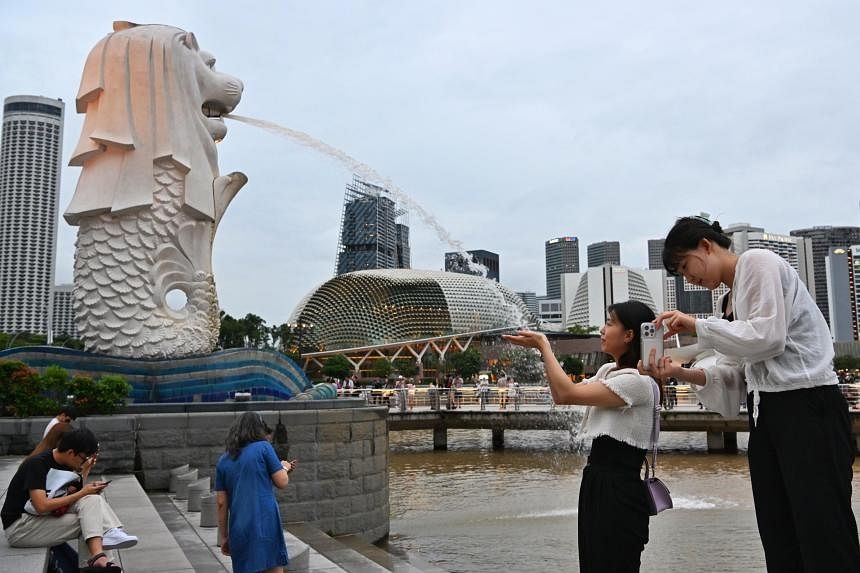Singapore has achieved success in ensuring a steady and reliable water supply through long-term vision, advanced technology, and collaboration with various stakeholders. Its experience offers valuable lessons for other cities worldwide facing water shortages in the coming years.
Viewing water as a valuable asset
Since gaining independence in 1965, Singapore has faced two primary challenges in water management: a burgeoning population and the risk of flooding. Between 1990 and 2018, its population nearly doubled, reaching 5.8 million.
Without natural water sources of its own, Singapore had to contract Malaysia for potable water. Additionally, about 30 percent of Singapore’s land is less than five meters above sea level, making the small island nation vulnerable to flooding and the need for a sustainable water supply.
Repeated droughts and floods increased risks to assets and residents, complicating the management of scarce water resources. A significant shift in Singapore’s water management was recognizing water as an environmental asset.
Assets need to be protected and accumulated. Singapore’s initial solution was building reservoirs and drainage systems to supply water and minimize flooding risks.
As the country developed, officials realized the need for strategies to enhance Singapore’s water resilience.
Under the 1972 Water Plan, authorities designed policies to build catchment areas and reservoirs for rainwater collection, boosting water supply.
However, implementing an island-wide drainage network alongside rapid urbanization and economic growth was a significant challenge.
Balancing these priorities required close coordination between government officials and land-use planning agencies.
3 water management strategies
Over the past two decades, Singapore’s National Water Agency (PUB) has succeeded in large-scale rainwater collection nationwide, collecting, treating, and reusing wastewater, and desalinating seawater.
PUB collects and treats all wastewater to convert it into clean, high-quality water, pioneering the use of recycled water known as NEWater.
Since 2017, NEWater has supplied up to 40 percent of Singapore’s daily water needs, equivalent to 430 million gallons (1,954 million liters). With demand expected to double by 2060, PUB plans to increase NEWater's capacity to 55 percent of the demand.
By 2060, desalinated water is projected to account for 30 percent of the total water demand, up from 25 percent in 2017. The remaining 15 percent will come from local catchment areas and imported water.
The biggest challenge is the lack of natural freshwater sources, such as groundwater and aquifers, along with limited space for rainwater collection and storage.
This challenge underscores the importance of the Marina Barrage, Singapore’s 15th reservoir and the first in the city center. The barrage was built based on the vision of Lee Kuan Yew, Singapore’s first Prime Minister, over three decades ago.
Operational since October 31, 2008, the Marina Barrage’s catchment area spans 10,000 hectares. This hydraulic project ensures clean water supply for the entire city and reduces flooding in low-lying areas of the island.
Since April 2009, the Marina Barrage has been desalinating seawater by using rainwater. During heavy rains and low tides, all nine gates of the barrage open to release excess rainwater into the sea.
During high tides, giant pumps, capable of discharging an Olympic-sized swimming pool's volume of water per minute, operate to expel water to the sea, maintaining stable water levels and protecting waterways, thereby reducing flood risks.
Reducing water consumption
Water management is incomplete without water conservation. Under the Singapore Green Plan 2030, the goal is to reduce household water consumption to 130 liters per person per day.
Currently, about 45 percent of Singapore’s daily water consumption comes from households, while the remaining 55 percent is used by industries and non-domestic sectors.
According to the Straits Times, household water consumption in Singapore decreased to 141 liters per person per day in 2023, down from 149 liters in 2022.
Reducing water consumption focuses on encouraging efficient water use in households and businesses. PUB promotes habits like reusing water and purchasing water-efficient devices and appliances.
A study on household water consumption by PUB from 2021 to 2022 showed that activities like bathing, flushing, kitchen use, and laundry account for about 80 percent of household water use.
Starting April 15, 2024, households managed by Singapore's Housing and Development Board will receive an electronic voucher worth SGD300 to purchase ten types of energy-efficient and water-efficient devices.
These ten products account for about 60 percent of a household’s average electricity consumption and about 90 percent of water consumption. Six of the ten products are water-related, such as toilets, washing machines, and water heaters.
Minister for Sustainability and the Environment Grace Fu stated that water-saving household products, coupled with good habits like running washing machines with full loads, will help reduce water use by an additional 10 liters, achieving the target of 130 liters.
Singapore has demonstrated that with good planning and commitment, a country can successfully adapt to the risks posed by climate change. Reducing household water consumption is a crucial step in this journey, contributing to a sustainable Singapore.
Like us on Facebook or follow us on Twitter to get the latest news about Vietnam!




















































